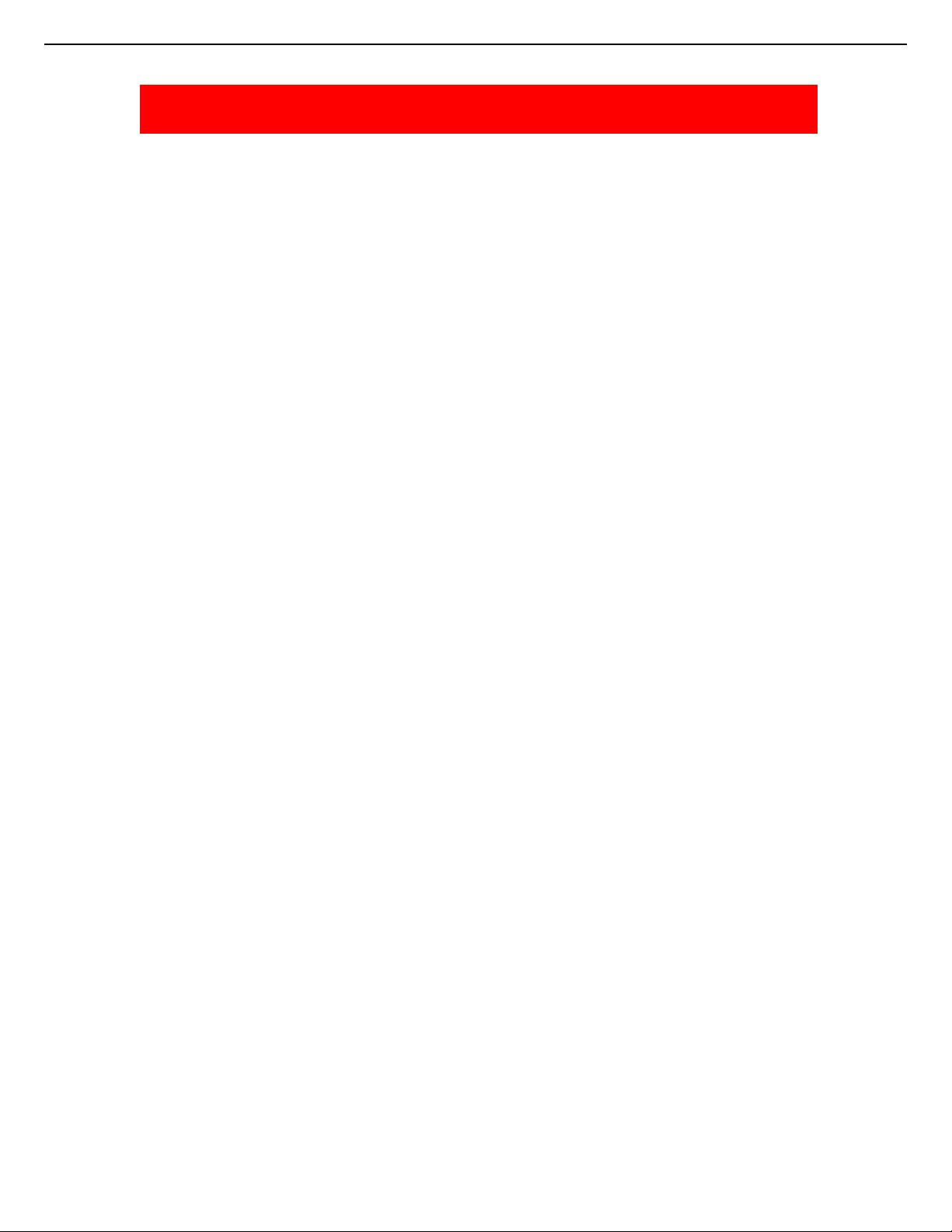
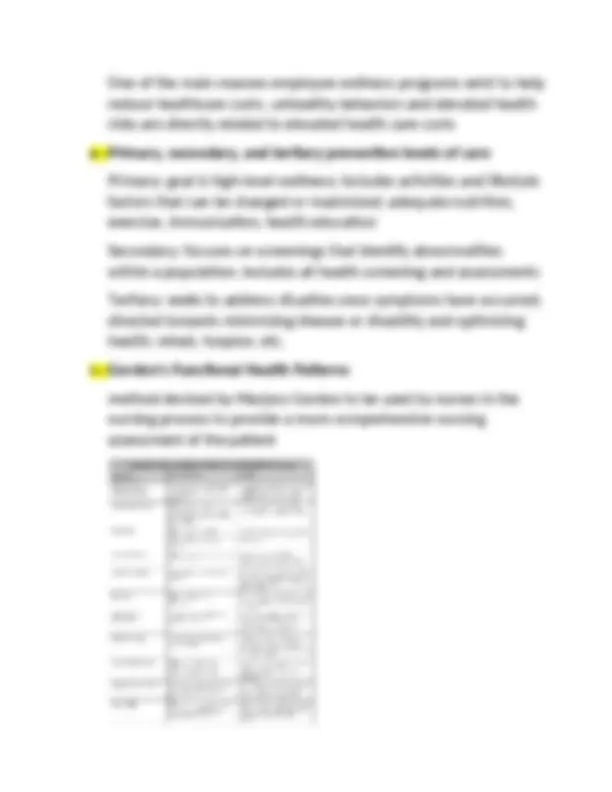
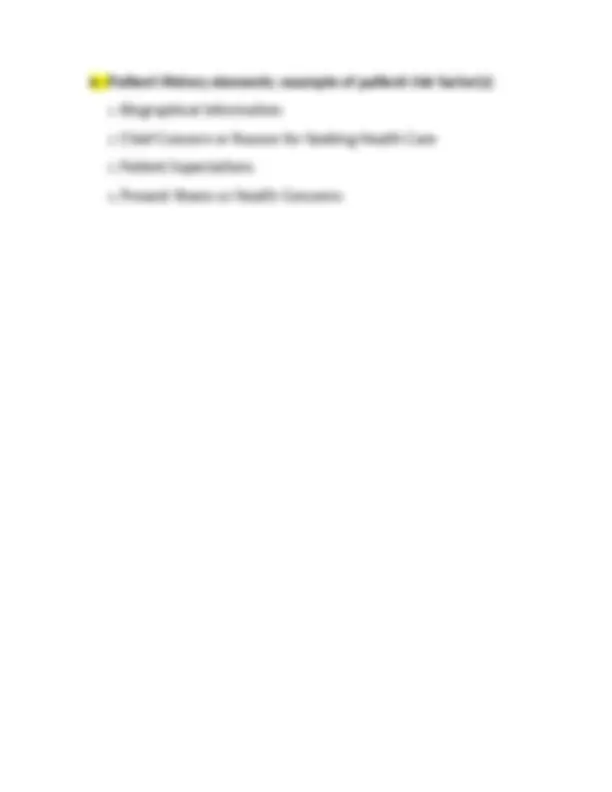
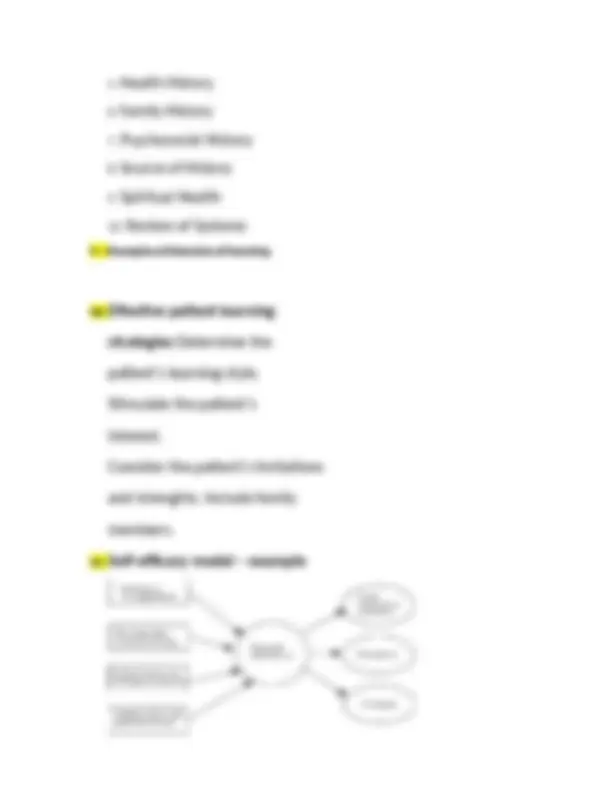
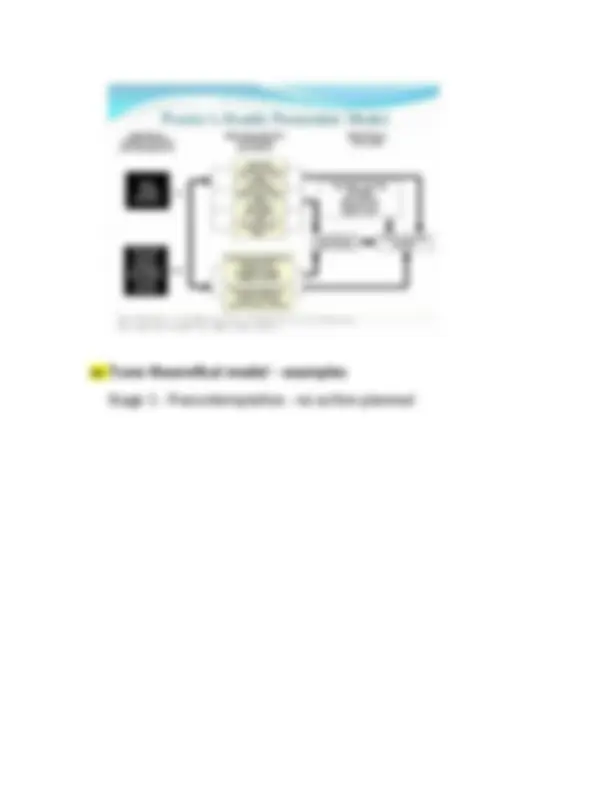
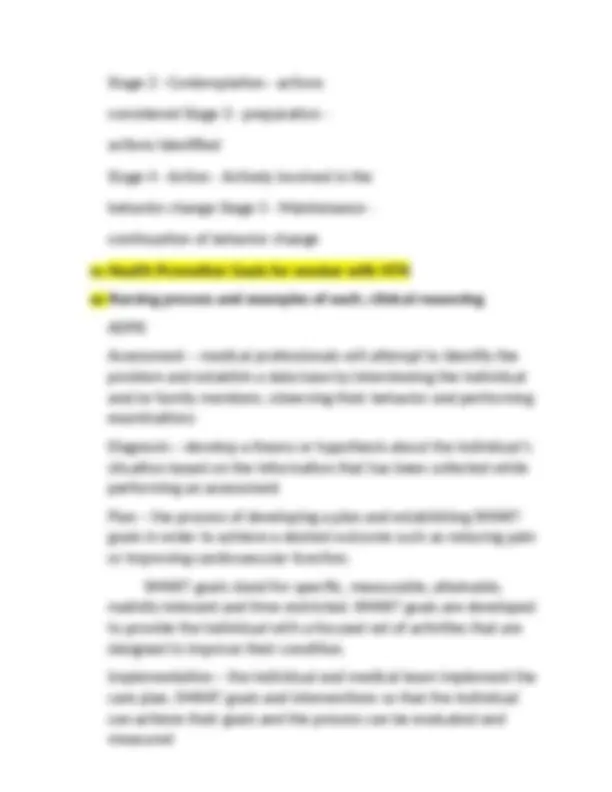
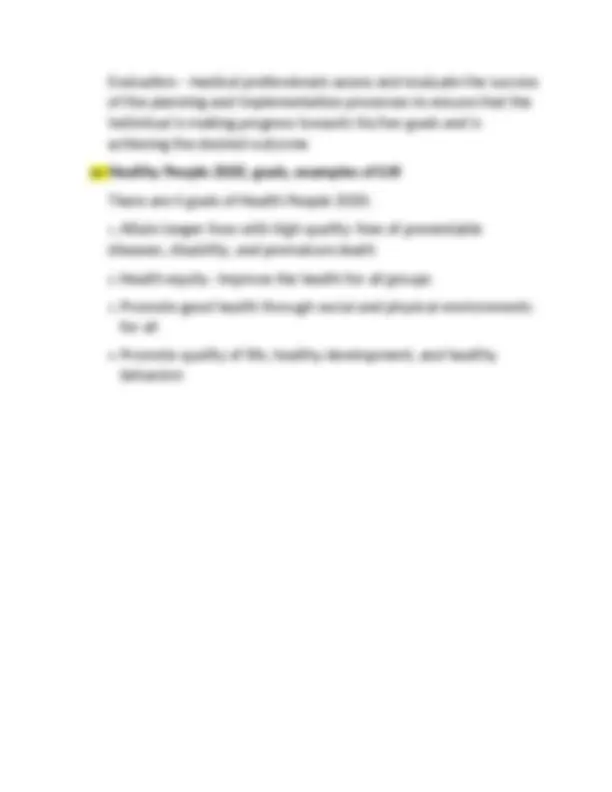
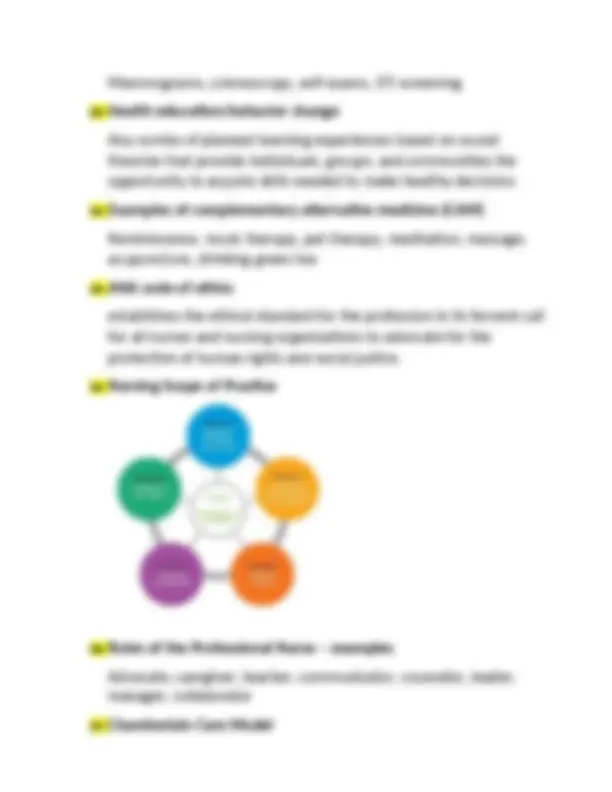
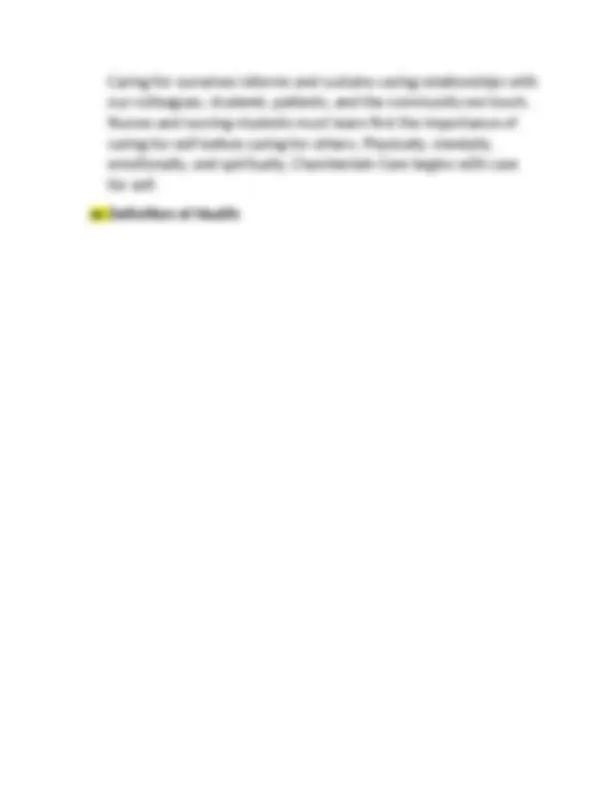
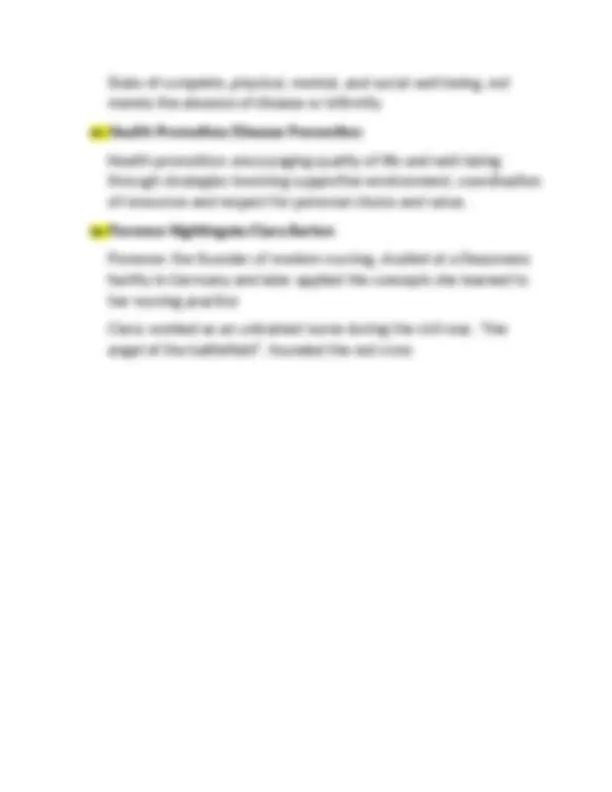


Study with the several resources on Docsity

Earn points by helping other students or get them with a premium plan


Prepare for your exams
Study with the several resources on Docsity

Earn points to download
Earn points by helping other students or get them with a premium plan
Community
Ask the community for help and clear up your study doubts
Discover the best universities in your country according to Docsity users
Free resources
Download our free guides on studying techniques, anxiety management strategies, and thesis advice from Docsity tutors
A guide to ethical principles in nursing, including advocacy, responsibility, accountability, confidentiality, and social networking. It also covers nursing standards of care, health promotion history, the role of nurses in promoting health, cost of health and wellness, health history, family history, psychosocial history, spiritual health, effective patient learning strategies, and various models used in nursing practice. examples of each principle and model, as well as objective and subjective findings in health assessment.
Typology: Exams
1 / 15

This page cannot be seen from the preview
Don't miss anything!










Ethics and examples of each
at lunch about the medical condition of a patient. It violates the patient’s privacy.
8. Patient History elements; example of patient risk factor(s) 1. Biographical Information 2. Chief Concern or Reason for Seeking Health Care 3. Patient Expectations 4. Present Illness or Health Concerns
addresses the relationship between a person’s beliefs and behaviors. The health belief model helps you understand factors influencing patients’ perceptions, beliefs, and behavior to plan care that will most effectively help patients maintain or restore health and prevent illness. This model has three components: an individual’s perception of susceptibility to an illness, an individual’s perception of the seriousness of the illness, and the likelihood that a person will take preventive action.
13. Pender’s Health Belief Model
14. Trans-theoretical model – examples Stage 1 - Precontemplation - no action planned
Evaluation - medical professionals assess and evaluate the success of the planning and implementation processes to ensure that the individual is making progress towards his/her goals and is achieving the desired outcome
17. Healthy People 2020, goals, examples of LHI There are 4 goals of Health People 2020: 1. Attain longer lives with high quality: free of preventable diseases, disability, and premature death 2. Health equity: improve the health for all groups 3. Promote good health through social and physical environments for all 4. Promote quality of life, healthy development, and healthy behaviors
18. Scope and Standards of Practice Goal is to improve the health and well-being of all individuals, communities, and populations through the significant and visible contributions of registered nursing using standards-based practice 19. Maslow’s hierarchy of needs/examples/physiologic needs a model that nurses use to understand the interrelationships of basic human needs. provides a basis for nurses to care for patients of all ages in all health settings. However, when applying the model, the focus of care is on a patient’s needs rather than on strict adherence to the hierarchy. To provide the most effective
Mammograms, colonoscopy, self-exams, STI screening
22. Health education/behavior change Any combo of planned learning experiences based on sound theories that provide individuals, groups, and communities the opportunity to acquire skills needed to make healthy decisions 23. Examples of complementary alternative medicine (CAM) Reminiscence, music therapy, pet therapy, meditation, massage, acupuncture, drinking green tea 24. ANA code of ethics establishes the ethical standard for the profession in its fervent call for all nurses and nursing organizations to advocate for the protection of human rights and social justice. **25. Nursing Scope of Practice
Caring for ourselves informs and sustains caring relationships with our colleagues, students, patients, and the community we touch. Nurses and nursing students must learn first the importance of caring for self before caring for others. Physically, mentally, emotionally, and spiritually, Chamberlain Care begins with care for self.
28. Definition of Health